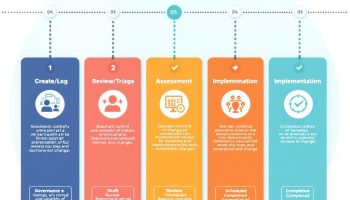
Project Management Software: Essential Tools for Modern Business
Project management software offers integrated platforms that streamline task coordination, resource allocation, and team collaboration across business operations. These tools centralize project information while providing visual workflows, automated processes, and comprehensive tracking capabilities that transform how teams execute complex initiatives.
Driving Business Efficiency and Competitive Advantage
Project management software delivers critical business value by addressing fundamental operational challenges. Organizations using these solutions experience improved productivity through streamlined workflows, enhanced transparency with real-time project visibility, and better resource utilization across departments. The platforms facilitate timely decision-making through data-driven insights while promoting accountability with clear task ownership. For businesses handling complex projects or managing remote teams, project management software creates structured environments that reduce communication gaps, minimize delays, and ultimately contribute to increased profitability through more efficient project delivery.
These digital solutions help you maintain project timelines and budgets with greater precision. You’ll find that team members stay aligned on objectives, reducing the risk of scope creep or missed deadlines.
Project management software also supports standardization of processes, allowing your organization to replicate successful approaches across multiple initiatives. This consistency boosts quality control and helps new team members adapt quickly to established workflows.
The reporting capabilities built into most project management platforms provide valuable insights into performance metrics, helping you identify bottlenecks and opportunities for improvement. You can track progress against key performance indicators and adjust strategies as needed to keep projects on track.
Organizations that use project management tools waste 28 times less work than those who don’t, according to the Project Management Institute.
9 Essential Project Management Software Solutions: Transform Your Workflow Today
In today’s fast-paced environment, selecting the right project management software is crucial for maintaining efficiency and collaboration across your teams. Whether you are a small startup or a large enterprise, the options available can cater to various needs, workflows, and budgets. This section presents a curated list of nine exceptional project management software solutions, each with unique features designed to enhance productivity and streamline operations.
From intuitive interfaces to powerful integration capabilities, these platforms are equipped to support teams in effectively managing tasks, deadlines, and communications. Dive into each software’s standout features and discover how they can transform your project management experience.
1. Asana: Streamlined Project Management Software
Asana is a leading project management software designed for mid-sized teams seeking efficient workflow solutions. This versatile tool helps you coordinate tasks while maintaining clear visibility across your projects. With its intuitive interface, Asana makes project management straightforward even for team members new to collaborative software.
The platform excels with its comprehensive timeline views that allow you to visualize project schedules and deadlines. Workload management features help prevent burnout by distributing tasks evenly among team members. The custom fields functionality lets you tailor projects to your specific needs and enhance project collaboration across departments.
Asana stands out for its extensive integration capabilities, connecting seamlessly with over 200 tools including Slack, Google Drive, and Microsoft Teams. This connectivity creates a centralized hub for all your project information.
Key benefits include:
- Intuitive drag-and-drop interface requiring minimal training
- Customizable project templates to standardize workflows
- Real-time updates and notifications
- Mobile app access for on-the-go management
With pricing ranging from a capable free version to $24.99/user/month for advanced features, Asana offers scalable solutions for growing organizations.
2. Monday.com: Visual Workflow Project Management Software
Monday.com stands out as a highly visual project management software that transforms **complex project tracking** into an intuitive experience. The platform’s colorful board system makes it easy to monitor project progress at a glance, helping teams stay organized without overwhelming complexity.
With customizable workflows, you can tailor Monday.com to match your team’s exact project management needs. The software excels at providing visual representations of project status, making it ideal for teams that benefit from seeing work progress rather than just reading about it. The collaborative features enhance team project work by allowing members to comment, assign tasks, and track time all in one place.
Key features that make Monday.com valuable include:
- Automated workflows that reduce manual updates
- Comprehensive time tracking for better resource management
- Customizable templates for quick project setup
- Visual dashboards for performance monitoring
Priced between $8-$16 per user per month, Monday.com offers excellent value for teams seeking a visual approach to project management. The platform’s intuitive design helps prevent common project management mistakes by keeping important information visible and accessible.
Expert Insight: Leverage Monday.com’s visual workflow capabilities to simplify project tracking. Its intuitive design fosters organization and minimizes complexity, allowing teams to easily monitor progress. Customize workflows and automate updates to enhance collaboration and keep critical information accessible, ensuring a streamlined project management experience.
3. Trello: Visual Project Management Software for Agile Teams
When searching for lightweight project management software that doesn’t compromise on functionality, Trello stands out as an excellent choice for small teams and startups. This intuitive tool uses a Kanban-style board system that makes project visualization straightforward and engaging.
Trello’s drag-and-drop interface allows you to move tasks through different stages with minimal effort. Each card can contain checklists, due dates, attachments, and comments, giving your team everything needed to track progress effectively. The platform’s simplicity makes it ideal for teams implementing Agile methodologies without overwhelming complexity.
Key features that elevate Trello include:
- Customizable Kanban boards that adapt to your workflow
- Power-ups that extend functionality (calendar view, time tracking)
- Collaborative checklists for detailed task management
- Integration with tools like Slack, Google Drive, and Dropbox
With pricing ranging from a robust free plan to $17.50/user/month for Business Class features, Trello offers excellent value. The free version provides unlimited cards and boards, making it sufficient for many small teams focusing on project collaboration without complex requirements.
Expert Insight: For teams embracing Agile methodologies, Trello offers an intuitive, visual project management experience with its customizable Kanban boards. Utilize its drag-and-drop interface and collaborative features to streamline task tracking and enhance productivity. Explore Power-ups to extend functionality and integrate seamlessly with your existing tools.
4. Jira: Developer-Friendly Project Management Software
Jira has established itself as a cornerstone project management software specifically designed for software development teams. When managing complex development projects, you need tools that can handle agile methodologies effectively. Jira excels in this area with its robust bug tracking capabilities, customizable scrum boards, and sprint planning features that align perfectly with modern development practices.
The software’s standout feature is its advanced development-focused toolset that integrates seamlessly with other Atlassian products like Confluence and Bitbucket. This integration creates a powerful ecosystem for teams looking to enhance project collaboration and streamline workflows. Jira’s reporting capabilities are particularly valuable, providing detailed insights into sprint velocity, burndown charts, and overall project progress.
Key features that make Jira an excellent project management software choice include:
- Customizable workflows that adapt to your team’s specific processes
- Advanced issue tracking with detailed filtering options
- Roadmap planning tools for visualizing long-term project goals
- REST API for custom integrations with your existing tech stack
With pricing ranging from free for small teams up to $14.50 per user per month for premium features, Jira offers flexible options for teams of all sizes. The platform helps you avoid common project management mistakes through its structured approach to development work.
Expert Insight: To maximize your team’s efficiency with Jira, leverage its customizable workflows and advanced issue tracking to align development processes with agile methodologies. Utilize the integration with tools like Confluence and Bitbucket for enhanced collaboration, and regularly analyze reporting insights to drive continuous improvement in project management practices.
5. ClickUp: The Versatile Project Management Software Solution
ClickUp stands out as one of the most comprehensive project management software options available today. This all-in-one platform helps you streamline workflows across your entire organization with its impressive feature set. The software offers remarkable flexibility with customizable views including list, board, calendar, and Gantt charts that adapt to your team’s preferred working style.
What makes ClickUp particularly attractive is its feature-rich free plan, which provides substantial value compared to competitors. You can manage unlimited tasks and users even without paying a cent. For growing teams, the pricing structure remains competitive, ranging from free to $19 per user per month for the Business plan.
The platform excels in these key areas:
- Collaborative documents – Create, share, and edit project documentation in real-time
- Goal tracking – Set measurable objectives and monitor progress visually
- Time management – Track hours spent on tasks and generate comprehensive reports
- Process automation – Eliminate repetitive work with customizable workflow rules
ClickUp integrates seamlessly with over 1,000 tools, making it easy to incorporate into your existing tech stack. When collaborating on projects, you’ll appreciate how ClickUp centralizes communication, files, and task management in one accessible location.
Expert Insight: Maximize productivity with ClickUp by leveraging its customizable views and collaborative features. Utilize the free plan to manage unlimited tasks and integrate with over 1,000 tools, ensuring smooth workflows across your organization. Embrace automation and goal tracking to enhance efficiency and meet project deadlines effectively.
6. Basecamp: Remote Collaboration Project Management Software
Basecamp stands out in the project management software landscape as an ideal solution for remote teams. This platform simplifies collaboration across distances with its straightforward approach to project organization. Basecamp offers essential tools that remote teams need without overwhelming users with complex features.
The core strength of this project management software lies in its streamlined communication tools. The message boards function as a central hub where team discussions remain organized by topic, eliminating the confusion of scattered email threads. To-do lists help track assignments with clear deadlines and responsibilities, ensuring everyone knows their priorities. The file storage system keeps documents accessible to all team members regardless of location.
What truly distinguishes Basecamp from competitors is its refreshing pricing model. Unlike most project management software that charges per user, Basecamp offers:
- Flat-rate pricing of $99/month
- Unlimited users on a single account
- No extra fees as your team grows
- All features included in one plan
This pricing structure makes Basecamp particularly attractive for growing organizations engaging in project collaboration across multiple teams. You can add freelancers, clients, or new employees without worrying about escalating costs that typically come with per-user pricing models.
7. Wrike – Enterprise Project Management Software
Wrike stands as a powerful project management software solution engineered specifically for enterprise organizations needing robust management capabilities. With its comprehensive feature set, this platform helps large teams coordinate complex projects across departments and locations.
The platform offers several standout features that make it a preferred choice for enterprise project management:
- Cross-tagging functionality that enhances organization and searchability
- Customizable workflows that adapt to your specific business processes
- Interactive Gantt charts for visualizing project timelines and dependencies
What truly sets Wrike apart in the project management software landscape is its advanced security features, making it ideal for organizations with strict compliance requirements. You can implement role-based access controls, two-factor authentication, and password policies to protect sensitive project information effectively.
The pricing structure ranges from $9.80 to $24.80 per user per month, offering tiered options to match your organization’s needs. While the investment is higher than some alternatives, the enterprise-grade functionality justifies the cost for large organizations requiring sophisticated collaboration tools. Wrike’s reporting capabilities help executives track project performance and resource allocation, providing valuable insights for strategic decision-making.
8. Notion – Documentation-Centered Project Management Software
When managing documentation-heavy projects, you need project management software that excels at organizing information. Notion delivers exactly that with its wiki-style organization system that helps you create comprehensive project documentation that’s easily accessible to your entire team.
Notion’s standout feature is its incredibly flexible content structure, allowing you to build custom databases and knowledge bases for your projects. This versatility makes it perfect for teams who need to maintain detailed project specifications, research notes, or collaborative documentation.
Key features that make Notion a powerful project management software option include:
- Wiki-style organization that makes finding information intuitive
- Customizable databases to track tasks, deadlines, and resources
- Template gallery for quick project setup
- Seamless integration with other productivity tools
The platform’s collaborative editing capabilities make it ideal for project collaboration where multiple team members need to contribute to documentation. You’ll find Notion particularly valuable for complex projects requiring extensive knowledge management.
With pricing ranging from Free to $8/user/month, Notion offers excellent value for teams needing a documentation-focused approach to project management. The free tier provides ample functionality for individuals and small teams just getting started.
9. Smartsheet: Spreadsheet-Based Project Management Software
Smartsheet offers a comfortable transition for Excel users venturing into project management software solutions. With its familiar spreadsheet interface, you can quickly adapt to this powerful tool without a steep learning curve. The platform combines the structure of spreadsheets with robust project management capabilities to help you track and organize work efficiently.
This project management software stands out with its automated workflow capabilities that eliminate repetitive tasks. You can set up automated alerts, update requests, and approval processes to keep projects moving forward without constant supervision. Some key features include:
- Grid, Gantt, card, and calendar views for versatile project visualization
- Conditional formatting to highlight important information
- Real-time collaboration tools for team coordination
- Pre-built templates for various industries and project types
Smartsheet particularly excels in reporting functionality, allowing you to create comprehensive dashboards that drive performance through visual data representation. The platform’s integration capabilities connect with popular tools like Microsoft Teams, Google Workspace, and Salesforce, creating a centralized workspace for all your project needs.
For organizations managing multiple complex initiatives, Smartsheet’s resource management features help prevent resource shortages by providing clear visibility into team capacity and workload distribution.

Project Management Software Tools
Project management software tools like Asana, Monday.com, Trello, Jira, ClickUp, Basecamp, Wrike, Notion, and Smartsheet offer specialized solutions for teams seeking to organize, track, and collaborate on projects effectively. These platforms provide customizable workflows, visual task management, and integration capabilities that transform complex project tracking into intuitive, streamlined processes for businesses of all sizes.
The Importance of Project Management Software
Project management software has become essential for modern businesses facing increasingly complex workflows and distributed teams. These tools centralize communication, automate repetitive tasks, provide real-time visibility into project status, and enable teams to collaborate effectively regardless of location—ultimately reducing errors, improving resource allocation, enhancing accountability, and ensuring projects are completed on time and within budget.






